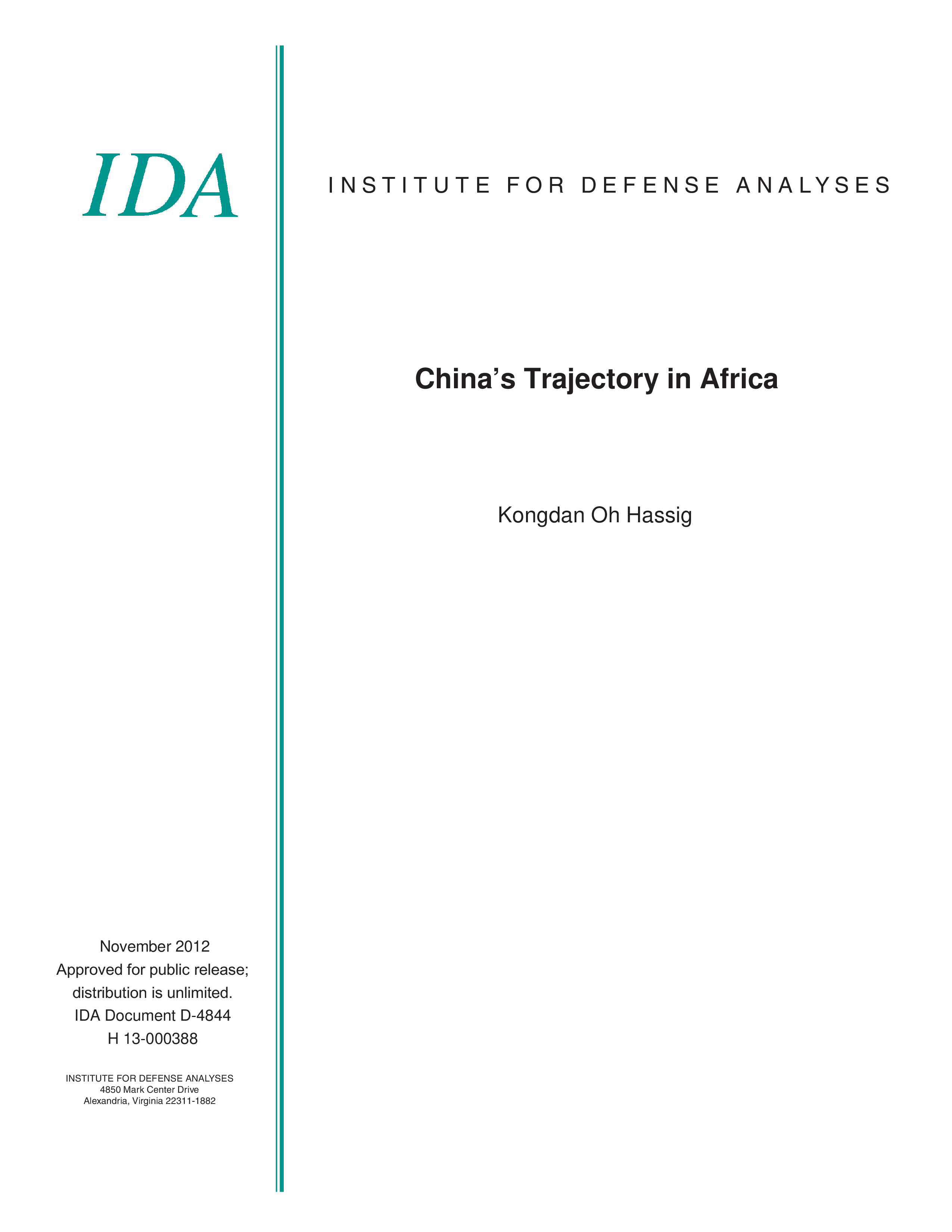China's Trajectory in Africa
November, 2012
IDA document: D-4844
FFRDC: Systems and Analyses Center
Type: Documents
Division: Intelligence Analyses Division,
Global Dynamics and Intelligence Division
Authors:
IDA document: D-4844
FFRDC: Systems and Analyses Center
Type: Documents
Division: Intelligence Analyses Division
Authors:
Authors
Kongdan Oh Hassig
See more authors

